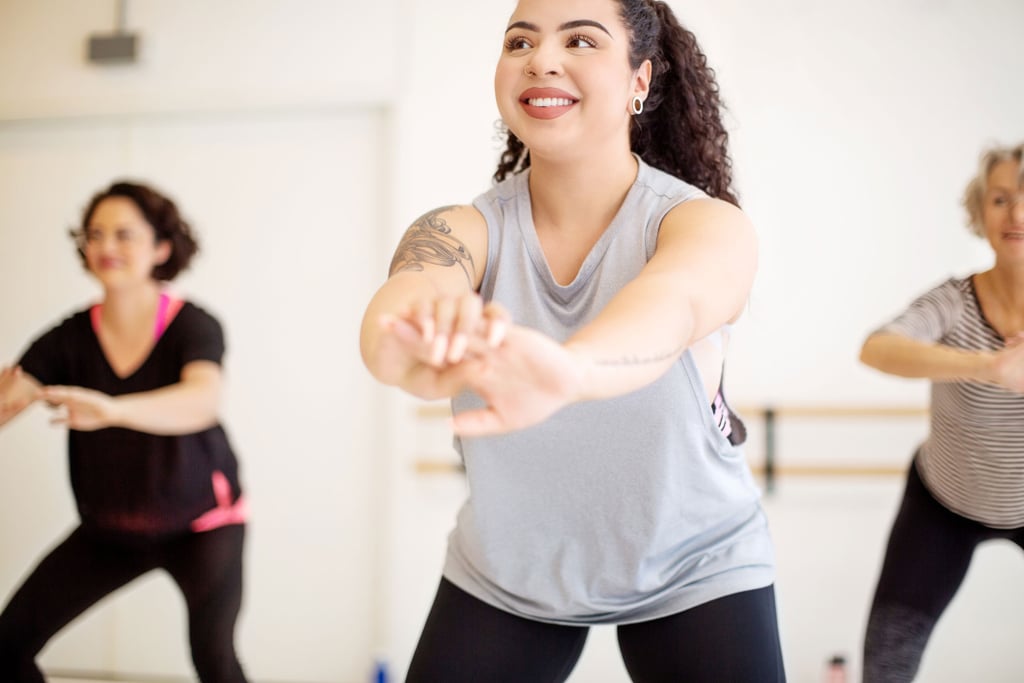After the celebrations of the holiday season, people are ready to "reset" and make New Year's resolutions, vowing to live healthier and happier. Maybe you're promising to do 10 minutes of self-care each day [1], to eat more plant-based [2], or to get in more daily steps [3]. If you want your new habits to stick this year, Wayne Scott Andersen [4], MD, Co-Founder of Optavia [5], and New York Times bestselling author, has devoted his life to optimal well-being. Ahead, find his tips on how to develop healthy habits.

How Long Does It Take to Develop Healthy Habits?

Brushing your teeth and putting your seatbelt have become automatic healthy habits you do every day. So how long does it take to make things like working out consistently and eating healthy automatic, too?
You may have heard that a habit becomes ingrained after the magic number of 21 days, but Dr. Anderson explained that the science of behaviour change has advanced significantly in the past couple of decades, and recently the University College of London shed light on the variability of habit installation [7].
"The time necessary to adopt a new habit depends on the complexity of the desired behaviour," he said. For example, the habit of drinking more water each day may take as little as 18 days to install for some people, while something as complex as interval training for a marathon may take several months.
"Ability, motivation, and environment are all variables that can affect how long it takes to learn a new habit," he explained. "However, the research concluded that most habits can be installed, on average, in 66 days." So if you start a new habit as a New Year's resolution on Jan. 1, most people will turn it into a habit by March 6 (I don't know if that makes me feel better or worse!).
He went on to explain that there's a theory that states there are three psychological phases to make a more difficult habit stick. They are:
Phase 1: First third, you want to quit.
Phase 2: Second third, you are adjusting, and it's becoming easier.
Phase 3: Last part, you are falling into a rhythm and it's becoming progressively easier.
Throughout these three phases, you will sense the transition when the habit moves from requiring all your attention and feeling uncomfortable to the moment when you sense you are on the final downhill leg and the behaviour comes automatic with little effort and no conscious thought. So while forming a new habit may feel difficult at first, knowing it'll get easier may help you stick with it!
Tips on How to Develop Healthy Habits

- Start small: Since the key to habit formation is doing the action or routine consistently over time until it's automatic, the key to installing habits is to make the action simple enough that it doesn't take too much effort, suggested Dr. Anderson. "Start with the simplest, easiest goal imaginable. Make the threshold for success so low that you can't help but be successful and begin to establish the habit through repetition first."
- Surround yourself with support: It's critical to have people who support and encourage you to stick with your goals. In addition to supportive family and friends, Dr. Anderson said to get a workout buddy, a meal prep buddy — or, if you can afford it — a personal trainer, a coach, a registered dietitian, or whoever you can to help you.
- Find your why: "In order to achieve a goal, we need both the why and the how. The why is, 'why is this important to me? Why am I willing to experience this discomfort?' The how is, 'how am I going to achieve this goal? Who can help me?'" He said that often we fail because we only have one or the other.
-
Use the "Stop. Challenge. Choose." model for behaviour change: "One of the key elements of 'Stop. Challenge. Choose.' [model] is finding ways to slow down and pay attention to where you are at that moment," said Dr. Anderson. It's an important first step on your journey to a better, healthier life, as it can help you rediscover what really matters to you.
- Stop: Pause for a moment and consciously examine your surroundings and how you're feeling in the moment.
- Challenge: Think about why you're considering this action and whether it will help or hinder your goals. Are you where you want to be?
- Choose: Choose an action, such as something that will make your health a priority.
Habits to Help You Feel Happier

If one of your goals is to feel happier, Dr. Anderson said, "organise your life around what matters most to you." You can avoid (or lessen) stress and frustration by prioritising the tasks that add meaning to your life.
"Organising our life around the pursuit of what's most important to us appears to convey a type of immunity, an enhanced tolerance to whatever life dishes out."
Habits to Help You Feel More Energetic

"Move like you did when you were a kid," he said. "Beyond intentional exercise, it's important to create a lifestyle filled with healthy motion throughout the day." You can clean the house, have a dance party in your living room, ride a bike for fun, walk the dog, or take the stairs instead of the escalator.
"Think back to the activities you enjoyed as a kid, like dancing, shopping, or playing guitar," Dr. Anderson said. "Even something as simple as changing your posture at work can have a dramatic effect on energy balance."
Habits to Help You Eat Better

If eating better is your goal, try eating smaller, more frequent meals. Dr. Anderson said it's not just what you eat but also when you eat it. When you fuel your body at regular intervals (rather than sticking with three-square meals a day), you may find you have more sustained energy throughout the day. He suggested having breakfast within 30 minutes of waking up and eating every three hours throughout the rest of the day.
Habits to Help You Sleep Better

"Find your chronotype [8], which essentially boils down to whether you're a morning person or a night owl," said Dr. Anderson. Once you know your preference and natural energy cadence, you can establish your transition time (when you should be winding down for sleep – typically about one hour before your ideal bedtime). Then develop a nighttime ritual [9] and stick to it.
He said you want to finish chores and work-related tasks in time to transition to bedtime by doing whatever mellows you out such as dimming the lights, lighting candles, listening to soothing music, reading a book, doing some yoga, taking a hot shower, or writing in your journal — try listing three things you're grateful for.